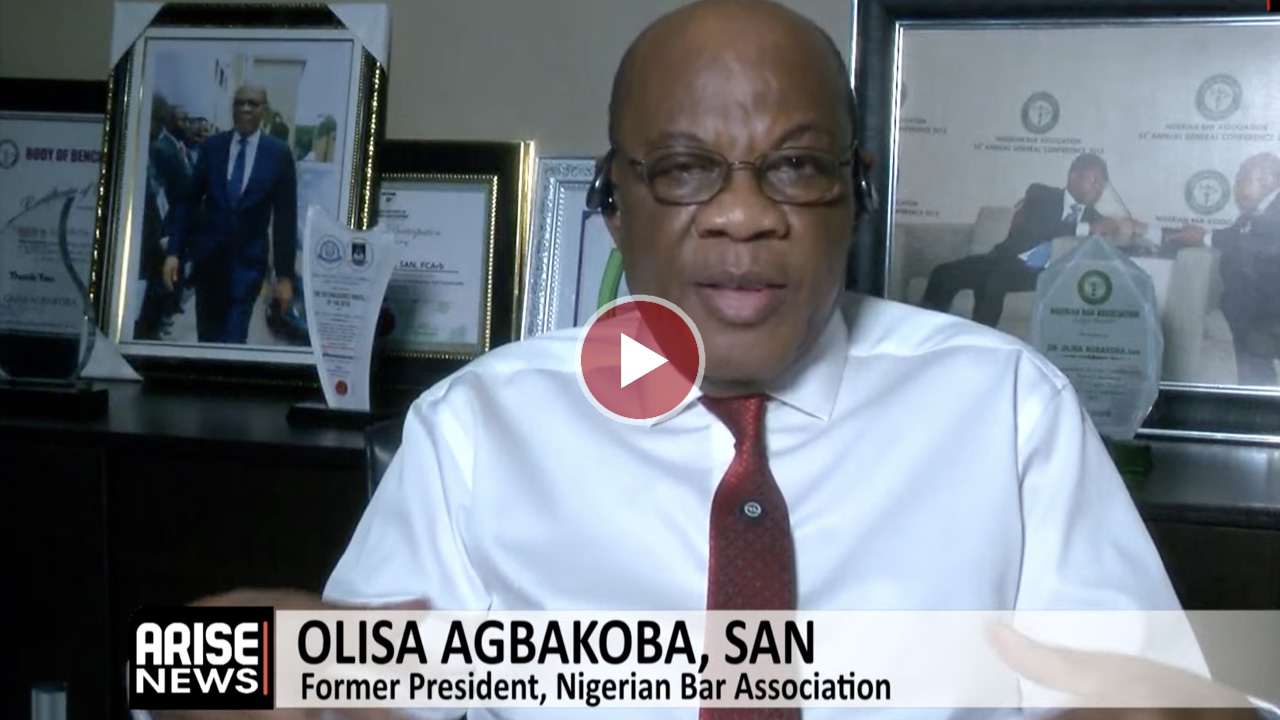

Former President of the Nigerian Bar Association (NBA), Dr. Olisa Agbakoba (SAN), has warned that Nigeria faces an existential threat if it fails to undertake urgent and far-reaching constitutional reforms through true devolution of powers to its regions.
Speaking in an interview with ARISE News on Wednesday, Agbakoba said Nigeria’s current political structure is “unsustainable and dangerously weak,” adding that unless the country is restructured to give regional ethnicities genuine autonomy within a functional federal framework, poverty, insecurity, and instability will continue to worsen.
“The way we’re structured, as a diverse people with multiple ethnicities, the best system that will work for us is federalism,” Agbakoba said. “Unless we have space in Nigeria—some call it confederation—unless we give the regional ethnicities their own independence within the context of a Nigerian federal system, it’s unlikely we’ll go very far.”
He lamented that despite 25 years of repeated attempts at constitutional reform, including constitution review committees inaugurated by successive National Assemblies, no meaningful progress had been made.
“We’ve been at this devolution discussion since 1999, effectively making it 25 years,” he noted. “The National Assembly has been at it with no results, even though I must acknowledge they’ve passed about 80 amendments this year alone. But it’s not having the impact we want it to have.”
Agbakoba argued that the President of Nigeria, as Chief Executive under Section 5 of the Constitution, should personally drive the restructuring agenda.
“This is a big issue that the President himself should be driving,” he said. “You may not like Trump, but one thing about him is that he’s always in front. I think the President of Nigeria should be in front on this issue. If he drives it, we’ll see big change.”
The senior advocate warned that failure to restructure the country could lead to greater social unrest and economic stagnation.
“The biggest threat is that we’re going to limp along. Poverty will rise, unemployment will increase, insecurity will be rampant, simply because there’s no accountability,” he cautioned. “We’ve had all sorts of development plans, but tell me where they’ve taken us. We’re at a clear and present danger point.”
Agbakoba linked Nigeria’s persistent economic difficulties to its flawed political foundation, saying no reform agenda can succeed without first addressing the structure of governance.
“Economic reform cannot work in the context of a weak political foundation,” he explained. “If you have a well-structured Nigeria, it will release trapped energy. That energy will flow into the regions and create real development. I’m not sure we can get it right by prioritising economic reform while ignoring what’s under the table—that is completely rotten.”
He also dismissed the ongoing constitutional amendment process as inadequate, calling instead for a “transformational process” that fundamentally reconstitutes Nigeria’s political structure.
“The National Assembly’s 80 amendments are commendable, but the bulk work of devolution has not been done,” he said. “We need a new political structure. Either we return to the 1963 regional model or adopt the Aburi Accord model of 1967. The current system, where the federal government controls 68 items on the exclusive list and 30 on the concurrent list, simply isn’t working.”
The former NBA president urged ethnic and regional organisations such as Afenifere, Ohanaeze, and PANDEF, as well as civil society, to increase pressure for restructuring.
“These sub-national entities can do more to press the case forward,” he said. “We need organised social pressure to push this. I’m here as a lone voice saying what I’ve been saying for 25 years.”
Agbakoba applauded President Bola Tinubu for securing financial autonomy for local governments through the Supreme Court but urged him to show similar resolve on devolution.
“The President pushed for financial autonomy for local governments, and it worked. He went to the Supreme Court and won. Imagine what could happen if he put the same weight behind devolution,” he said.
He, however, criticised Nigeria’s political class for lacking ideology and commitment to reform.
“We don’t have political parties in the true sense. They exist only as access to power,” he said. “When governors are elected on one platform and immediately decamp, what ideology drives that? It shows that the political class isn’t interested in devolution—it’s about raw power.”
Calling for restructuring to become a central issue in the 2027 elections, Agbakoba said the political elite’s indifference to reform has left Nigeria lagging behind smaller African nations.
“Devolution must be on the ballot in 2027,” he said. “Countries like Namibia, Botswana, Rwanda, Kenya, and even Ivory Coast have left us behind. They’re serious countries with serious agendas. Our political class is interested only in power, not development.”
He warned that Nigeria’s current state of governance was perilous, with weak local and state governments and a politically stifled environment.
“Nigeria has never been at its weakest,” Agbakoba lamented. “It’s more difficult now to protest than under the military. The political space is shrinking. We have 774 dead local governments and financially crippled states—apart from Lagos and Rivers, the rest are broke. The country is technically insolvent.”
Agbakoba concluded that devolution remains the only viable remedy to Nigeria’s worsening crisis.
“If Nigeria were a patient in the ICU, my prescription would be simple: devolve more powers,” he said. “That’s the only way to save this country.”
Boluwatife Enome



